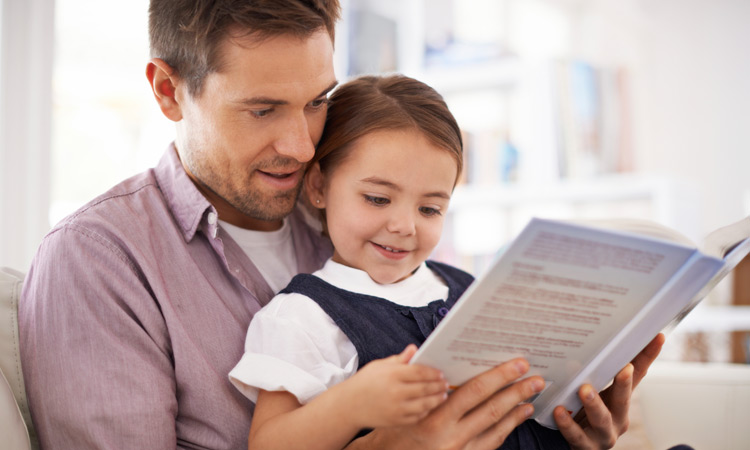How Reading Aloud Makes A Difference
For most of us, we first discovered books when someone–a parent, babysitter, family member or caregiver–read to us. Typically, story time is a nice way to end the day and transition toward bedtime.
Children put on their pajamas, pile into bed, and snuggle in to hear a story or two. Over time—often before they’re even school age—children begin to understand the connection between individual letters of the alphabet and words, between words and sentences, sentences and paragraphs, paragraphs and whole stories. They develop an awareness of language and plot, begin to understand internal and external worlds, build empathy, and learn about thoughts and feelings, trouble and resolution. They discover facts and theories, magic and meaning. Reading is an undeniably significant building block for learning and growing as a human being.
March is National Reading Awareness Month, and I want to focus on the importance of reading to children. This foundational skill cannot be underestimated. Even at an early age, infants express a love for books. Experts explain that newborns benefit from being read to, and those benefits range from healthy socialization and cognitive stimulation to improved sleep patterns.
The fact is, however, that more than half of the children in the United States will not have anyone read a story to them tonight. The non-profit group, Read Aloud, created a campaign to change that fact by asking people to read aloud to their children on a regular basis. Their slogan? “Read Aloud for 15 Minutes. Every Child. Every Parent. Every Day.” Read Aloud tells us, “By the age of 4, low-income children have heard an average 32 million fewer words than their wealthy peers. Reading aloud is a key way to introduce new vocabulary.”
Another non-profit organization called Community Partners of Dallas has created a program called Storyline. The idea behind Storyline is to have adult volunteers record themselves reading a story. Anyone from the public can call and listen to the story, and children especially love the program.
If there’s a child in your life, read that child a story. Otherwise, consider serving as a volunteer to read to a child you’ve never met. Reading to a child creates magic for both of you. Children enjoy learning language, turning pages, looking at colors, seeing pictures, and listening to the rise and fall of your voice. You’ll love watching that child’s sense of discovery, engagement, and curiosity. You can nurture a passion for reading early, and create a love of learning that lasts a lifetime.
Join the 15 Minute Movement today! – www.readaloud.org

Rose Caiola
Inspired. Rewired.



